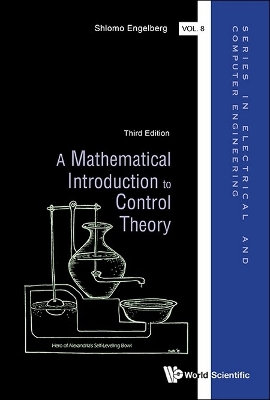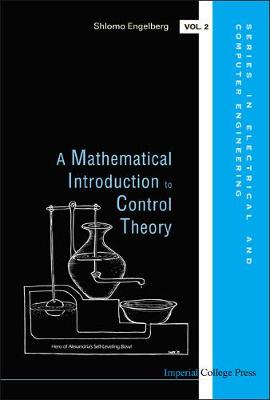Series in Electrical and Computer Engineering
1 primary work • 2 total works
Book 0
Mathematical Introduction To Control Theory, A (Third Edition)
by Shlomo Engelberg
Published 30 October 2024
The 3rd edition strikes a nice balance between mathematical rigor and engineering oriented applications, helping students to understand the mathematical and engineering aspects of control theory.The book makes effective use of the tools provided by MATLAB® (and includes material about using the tools provided by the Python® programming language) in the design and analysis of control systems without allowing the computer-based tools to substitute for knowledge of control theory. The examples in the text are carefully designed to develop the student's intuition — in both mathematics and engineering.With over 90 solved homework problems and about 200 figures, this invaluable title will benefit junior and senior level university students in engineering.
Book 4
Striking a careful balance between mathematical rigor and engineering-oriented applications, this textbook aims to maximize the readers' understanding of both the mathematical and engineering aspects of control theory.The bedrock elements of classical control theory are comprehensively covered: the Routh-Hurwitz theorem and applications, Nyquist diagrams, Bode plots, root locus plots, the design of controllers (phase-lag, phase-lead, lag-lead, and PID), and three further advanced topics: non-linear control, modern control and discrete-time control.A Mathematical Introduction to Control Theory will be an invaluable book for junior and senior level university students in engineering, particularly electrical engineering. Students with a good knowledge of algebra and complex variables will also find many interesting applications in this volume.

